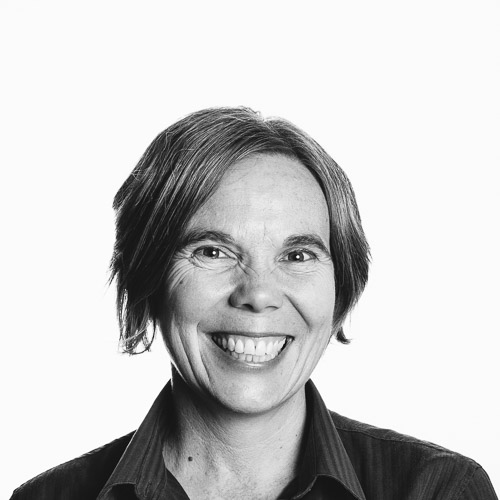Physiotherapy is an industry that is constantly evolving and changing as we learn more about the human body, injury prevention, and treatment. At SportsCare, we value every clinician’s career journey and professional development needs to continue growing and learning.
Study and training in physiotherapy
Becoming a qualified Physiotherapist takes time, patience, and focus. Most Physiotherapists begin with a bachelor’s degree in physiotherapy with an average duration of 4 years. From there, graduates must register with the Australian Health Practitioner Regulation Authority (Ahpra) to be licensed to practice.
Various universities offer a Master’s in Physiotherapy for people looking to switch from a related field to physiotherapy. Prior to commencing this degree, individuals bring a level of assumed knowledge from their undergraduate study, such as exercise science or biology. Individuals can complete a master’s degree in Physiotherapy to condense the duration of the course into two intense years of study. Despite completing a master’s degree, this would not result in becoming a Titled Physiotherapist, due to additional qualification and clinical experience requirements.
Training and professional development does not conclude when individuals finish their initial studies. Registered and working Physiotherapists are required by Ahpra to complete at least 20 hours of Continuing Professional Development (CPD) activities each year.
SportsCare offers clinicians paid study travel days, financial support for professional development, targeted new graduate and Senior Physiotherapist in-clinic discussions and learning opportunities, as well as manual therapy skills workshops to help staff meet this requirement and continue growing our collective understanding of the field.
On-the-job training in combination with clinical research means our Physiotherapists are constantly expanding their knowledge and skills in assessing, diagnosing, and providing best practice interventions to help achieve clients’ goals and meet their expectations. As the healthcare industry evolves, it is imperative that our clinicians grow in and with the industry.
Physiotherapist, Senior Physiotherapist, and Titled Physiotherapist – what’s the difference?
As a Physiotherapist progresses through their profession, so can their clinical classification. Different titles within SportsCare Canberra demonstrate the levels of experience and training that have been undertaken. So, what’s the difference between these three roles, and why are service prices different at SportsCare depending on who you book with?
A Physiotherapist is a graduate with 0-5 years of experience. A Physiotherapist carries a diverse clinical load, participates in a tutorial program, and receives support from an in-practice mentoring program. They’re well-equipped to treat and manage a variety of injuries and conditions and are starting to develop their assessment skills, manual therapy techniques, and exercise prescription ability.
A Senior Physiotherapist at SportsCare will generally have 5 or more years of experience. They will have a strong client following that has developed through working with sporting teams and communities and building trusting relationships with their clients, so they continue to return to their therapist for ongoing care for old and new injuries. A Senior Physiotherapist will often hold a clinical specialty or niche, such as concussion management and specific sport-related injuries. A Senior Physiotherapist may choose to go on to become a Titled Physiotherapist and we encourage and support the clinicians that choose to commit to this career pathway.
Finally, a Titled Physiotherapist will have a master’s degree in a specialised area, such as Sports or Women’s Health, and more than 5 years of clinical experience. A Titled Physiotherapist may treat more complex conditions within a wide range of patients, but still treats all areas of the body and conditions (unless specialised to a specific area of the body). Advanced clinical reasoning is developed and, in combination with the depth of clinical experience required to attain the Title, can provide the skills to implement an extensive assessment, diagnosis, and intervention plan.
From Chris, one of our Senior Physiotherapists

We talked to Chris Sproule, Senior Physiotherapist at SportsCare, about her experience in the industry and the professional pathway that led to her position at SportsCare.
This year, Chris is celebrating 34 years in the industry. She has worked in public hospitals in Sydney, Dubbo and Canberra, and has dedicated the last 25 years of her career to working in private practice.
Changes to clinical practice occur in lots of different ways, Chris says.
“Attending courses to broaden expertise and keeping up to date with new research influence practice” she said.
“Having a large and diverse team of physios here at SportsCare supports clinical practice change through being able to learn from each other as we share and discuss our wins and challenges with helping our patients. This occurs both formally and informally and is a wonderful part of working here.”
However, Chris believes the most significant influence on her growth as a Physiotherapist has been her clients.
“My patients are by far the most powerful and effective teachers. They challenge and encourage me as I partner with them to problem solve their movement issues. It is a great joy and privilege.”
At SportsCare, we love seeing our Physiotherapists grow and evolve over their careers. Through practical training, guidance, education, and staying up to date with the latest research, Physiotherapists can advance to Senior and Titled clinical positions. You can filter our staff page by clinical level to find out who at SportsCare is a general, Senior, or Titled Physiotherapist to find the right fit for you.
Interested in joining the SportsCare team and progressing your career? Check out our Careers Hub for more information.